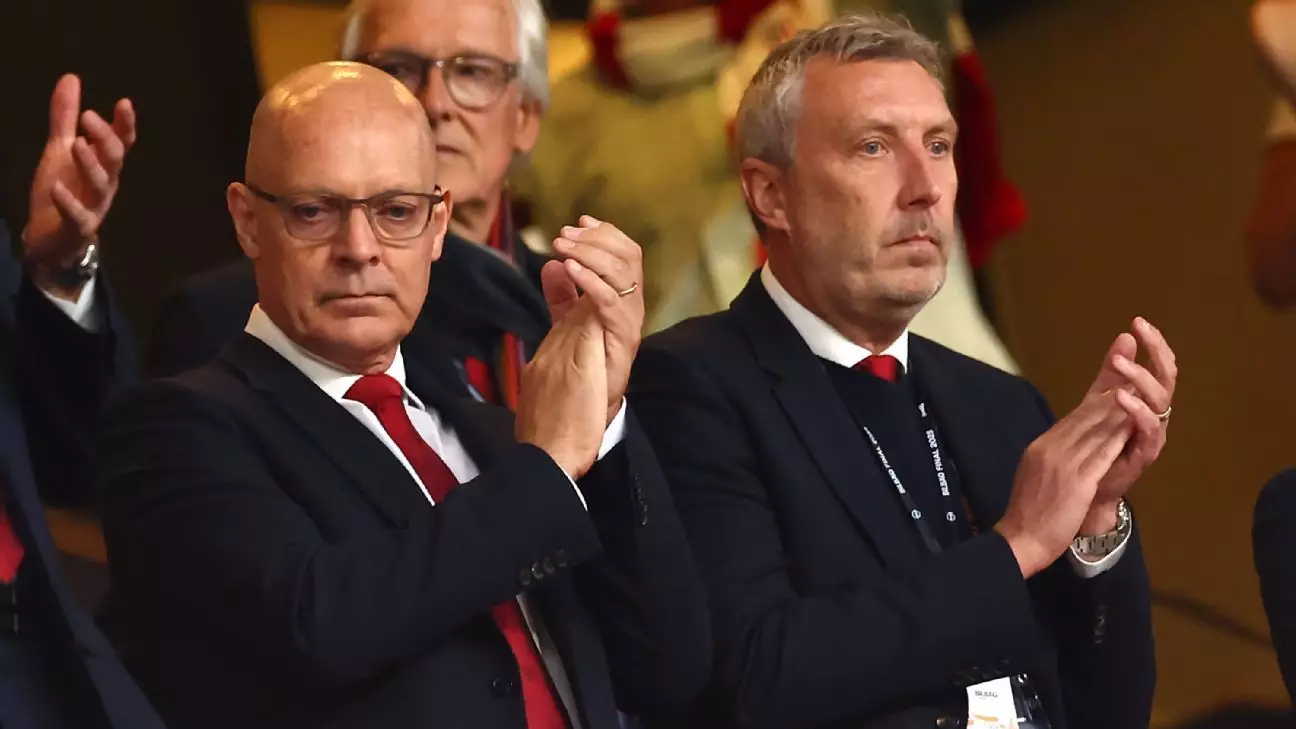Manchester United continues to experience seismic shifts within its football operations, illustrating the complexities of modern sports management. The recent scaling back of Dave Brailsford’s responsibilities marks a pivotal moment in a series of decisions that seem to reflect a club desperately seeking a new identity while grappling with the consequences of its past. Brailsford, renowned for his pivotal role in revolutionizing British cycling, has become a symbol of hope amidst chaos. Yet, with reports detailing his reduced involvement, one has to question whether the leadership vacuum is worsening rather than improving.
Under the ownership of billionaire Jim Ratcliffe, who invested significantly last year, expectations surged for a revival of the club’s fortunes. However, the reality has been starkly disappointing. United’s distressing 15th-place finish in the previous Premier League season—its worst in the club’s storied history—has left fans disillusioned. With a record low points total and an alarming number of defeats, it is clear that changes at the executive level have struggled to translate into on-field success. Are we witnessing a classic case of ‘too many cooks in the kitchen’?
The Price of High Hopes
Ratcliffe’s massive financial investment—amounting to £1.04 billion for a minority stake—was heralded as a turning point. However, instead of revitalizing Manchester United, it has seemingly led to instability. The departure of several high-profile figures, including head coach Erik ten Hag and director of football Dan Ashworth, reflects a deeper malaise within the club’s culture. Hiring and firing with such relentless frequency can create an atmosphere of uncertainty, undermining managerial authority and eroding the essence of team cohesion.
Brailsford remains associated with Ratcliffe’s INEOS, yet his diminishing role at United raises questions about the future direction of the club. The decision to keep figures like Omar Berrada and Jason Wilcox stabilizes the leadership grid slightly, but it may not be enough to restore faith among supporters. What the club needs is a unified vision, a coherent strategy that goes beyond immediate fixes, particularly when fan loyalty hangs by a thread.
A Transformation on the Horizon?
Despite the apparent turmoil, there are whispers of stability and long-term planning taking root within the club’s management. Whether it’s the strategic investments aimed at bolstering the squad or a renewed focus on nurturing young talent, many see opportunities amidst the currents of change. Ruben Amorim, as the new head coach, now faces the monumental task of rekindling the spirit of a club that once basked in glory.
The key lies in the ability of Manchester United’s leadership to re-align their ambitions with the aspirations of their storied fan base. Building a bridge of trust requires substantive action and transparency—qualities currently lacking. Expecting instant results from a muddled strategy will only lead to further disappointments.
In this challenging landscape, one thing remains clear: the way forward for Manchester United will not be easy, but it must be a thoughtful and calculated approach that prioritizes the roots of the club’s identity, rather than transient trends or higher-profile hires. It’s time for the Red Devils to remember what made them great in the first place.

